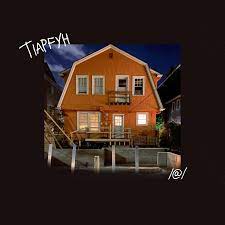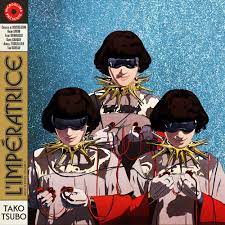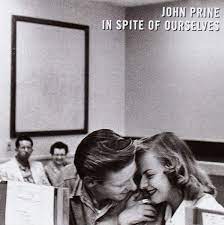Alright I think this is a first. Correct me if I’m wrong but I believe Left at London is to date the only Vine musicians to breakthrough into conventional music success. Left at London, the stage name of musician and internet personality Nat Puff, has released her debut album after the viral success of her “Transgender Street Legend” EP series, and the song “Revolution Lover” in particular.
Puff first garnered attention for her viral parodies of Frank Ocean and Mitski, where she wrote full scale parody songs as a promotional mechanism. This new album features songwriting credits from Will Toledo of Car Seat Headrest and Laura Les of 100 gecs. These influences are a pretty good approximation of where Puff is at; She sits at the crossroads of various styles of “Bandcamp music.” Unlike a lot of indie, she has a strong hip-hop influence, which is evident in many of the production aesthetics, but the songwriting and structure owe more to rock. The music is a little too low energy to be Hyperpop but the overall noise level mirrors that genre.
From this rather trendy pedigree, Puff struggles a little to carve out an identity, but her unique songwriting choices and ear for production make up for a lack of definition. The songs trend in the direction of “far too long,” a la monsieur Toledo, but she restrains herself to around the five minute mark on all but the album opener. The album is lyrically driven as a rule, with some songs like “The Ballad of Marion Zioncheck,” bending over into folksy territory. Her lyrics are emotional, generally preoccupied with mental health and inner turmoil, but written with just enough pretension to maintain interest.
The auditory aesthetics are perhaps the most compelling aspect of the music. Puff blends noise into songs without abandoning the conventional structure, making her music edgy and a little experimental while remaining more accessible than pop contemporaries like Black Dresses. Her voice is an asset as well, hanging in an unusually feathery contralto register than many women sing in, which contrasts both the bass of the guitars and the screeching treble of some louder passages. The result is that her voice cuts through the muck of the songs, allowing you to follow the lyrics without distraction.
While “t.i.a.p.f.y.” is a debut album, and a rather messy one, the music still shows great developing talent, and it features many memorable songs. Left at London is definitely an artist to watch in indie pop at the moment, and hopefully, her star will continue to rise.










